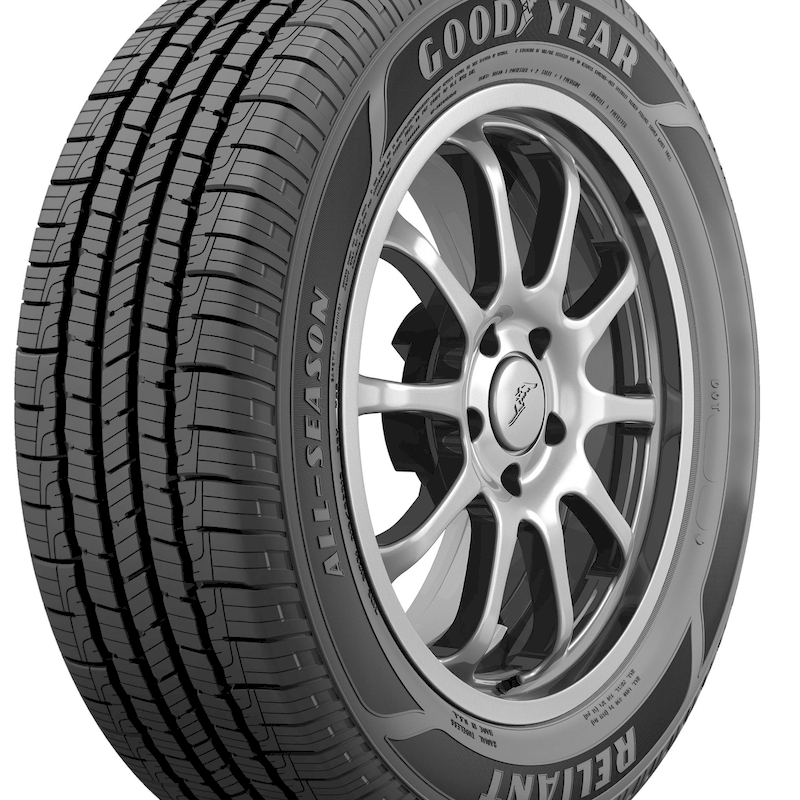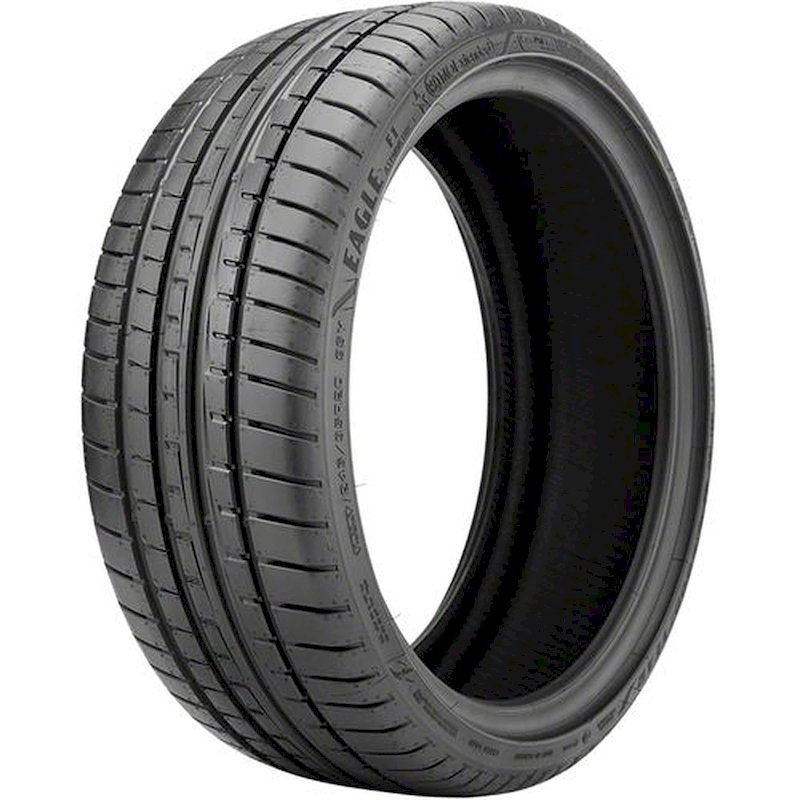When it comes to choosing tires for cars, trucks, or SUVs. Consumers often look for brands that not only guarantee quality and reliability but also have a trusted manufacturing background. One such brand is General Tire, recognized for producing a wide range of tires that serve various driving needs, from all-terrain performance to highway cruising. However, a common question that arises among potential buyers is: where are General Tires made? Understanding the origins of these tires is crucial in determining the value they provide and in establishing trust in their quality. In this exhaustive article, we will delve into the history of General Tire as a brand, the specific locations where their tires are manufacture. The advanced processes behind production, and the quality control measures in place to ensure each tire meets the highest standards.

A Brief Overview of General Tire
Before exploring where are General Tires made, it’s essential to have a general understanding of the company itself. Established in the early 20th century, General Tire has a rich history that reflects its evolution within the tire industry.
- Foundation and Development: General Tire was founded in 1915 in Akron, Ohio, a city well-know for its connections to the rubber and tire industry. Initially focused on producing tires for automobiles, General Tire saw rapid growth post-World War II as the demand for vehicles increased.
- Acquisition and Expansion: Over the decades, General Tire underwent various transformations, including acquisitions that allowed it to expand its product range and improve technology. In 1986, the company was acquired by the Continental Corporation, a major player in the global tire market, which provided General Tire with additional research and development resources.
- Product Range: Today, General Tire produces a diverse selection of tires catering to passenger cars, light trucks, SUVs, and commercial vehicles. Known for combining performance and affordability, their products are popular across various markets, particularly in North America.
Understanding the brand’s history lays the groundwork for a deeper discussion about where General Tires are manufacture and the quality assurances that accompany them.
Where Are General Tires Made?
When evaluating where are General Tires made, it’s important to note that their production facilities span several locations worldwide. Let’s take a closer look at the primary manufacturing sites:
- North America: General Tire maintains significant production facilities in North America, particularly in the United States. Their plants in Fort Mill, South Carolina, and other locations focus on producing a variety of tire lines, ensuring local availability and reduced shipping times.
- Global Manufacturing: In addition to North American production, General Tire also has manufacturing plants in various locations in Europe and Asia. These facilities work under the guidelines and standards established by the Continental Corporation, as well as local regulations.
- Investment in Facilities: Following advancements in technology and production techniques, General Tire continuously invests in optimizing their manufacturing capabilities. This includes the latest in automation and innovative processing methods for tire production.
By understanding the global footprint of General Tire manufacturing. Consumers can better appreciate the quality of the product they are purchasing.
The Manufacturing Process of General Tires
Understanding how General Tires are make requires a deep dive into their manufacturing process, which involves several key steps:
- Material Selection: The quality of a tire begins with the materials used. General Tires are built with premium raw materials, including natural and synthetic rubber, steel, polyester, and other compounds. Material selection directly impacts performance characteristics such as durability, traction, and handling.
- Design and Engineering: Modern tire manufacturing employs sophisticated design techniques using computer-aided design (CAD) software. Engineers assess the performance needs of specific tires, ensuring that tread patterns, sidewall designs, and overall dimensions align with the intended use.
- Tire Assembly: The assembly process usually involves a combination of automated machinery and manual labor. Layers of rubber, fabric, and steel belts are assembled together to create what is known as the “green tire.” This phase is critical for ensuring the tire gets the necessary structure and strength.
- Vulcanization: The green tire undergoes vulcanization, a process in which it’s heated inside a mold. This heat activates the curing agents within the rubber, leading to chemical changes that permanently bond the materials together, resulting in enhanced elasticity and durability.
- Quality Control Evaluation: After production, each tire undergoes rigorous quality control tests. They are checked for uniformity, balance, and structural integrity. Random samples may be subjected to further performance tests to ensure they meet safety standards.
This comprehensive understanding of the manufacturing process highlights the meticulous attention to detail that General Tire applies to each of its products.

Quality Control Measures
Quality assurance is essential in tire manufacturing, particularly given the safety implications of tire performance. General Tire follows stringent quality control measures throughout the production process:
- Quality Standards Compliance: General Tire adheres to international standards, ensuring all tires meet or exceed regulatory requirements. This commitment to compliance helps ensure consumer safety and satisfaction.
- In-House Testing: Within their manufacturing sites, General Tire has dedicated testing facilities that perform various assessments. These tests include durability, performance under high speeds, traction, and resistance to wear.
- Field Testing: In addition to laboratory testing, General Tire also conducts field tests where tires are evaluated under real-world conditions. This testing helps assess how tires perform in diverse environments, from urban streets to off-road terrains.
- Continuous Improvement: The company engages in a philosophy of continuous improvement, leveraging feedback from both laboratory tests and customer experiences. This practice allows General Tire to adapt and refine their manufacturing processes over time.
- Customer Feedback Integration: General Tire actively seeks and incorporates customer feedback into their product development cycle. Listening to end-user experiences informs design improvements and helps maintain high performance and satisfaction levels.
These rigorous quality control measures solidify General Tire’s reputation for safety and performance in the competitive tire market.
Performance Characteristics of General Tires
Next, it is essential to discuss the performance characteristics that General tires are known for, which can influence purchasing decisions:
- All-Terrain Performance: Many General tires are designed for all-terrain applications, equipping vehicles for various conditions, including wet highways and rugged off-road environments. Their exceptional tread patterns enhance traction regardless of the terrain.
- Durability and Longevity: General tires often incorporate advanced materials and innovative design features that contribute to their long-lasting durability. Many users note that these tires can handle extended wear, making them a favorable choice for both everyday and more demanding driving.
- Comfort and Handling: With the right balance between performance and comfort, General tires provide a smooth ride quality for passengers. This advantage is particularly beneficial for long-distance driving, where comfort can play a significant role.
- Cost-Effectiveness: General tires are priced competitively within their category, providing great value while maintaining quality standards. The combination of affordability and performance attracts a range of customers, from budget-conscious drivers to commercial fleet managers.
Understanding these performance characteristics helps consumers gauge whether General tires align with their specific driving needs and expectations.
Customer Feedback and Reviews
To further evaluate where General tires are made and their overall performance, it’s valuable to examine customer feedback and reviews. User experiences often illuminate key aspects of tire quality and satisfaction that cannot be measured solely through specifications:
- Positive Feedback: Many users praise General tires for their exceptional value, noting that they offer great performance at an affordable price. Positive comments often highlight the dependability of these tires in various driving conditions.
- Durability Reports: Customers frequently comment on the longevity of General tires, indicating that they often exceed expectations in terms of wear resistance and overall lifespan. Good reviews in this area enhance consumer confidence.
- Varied Performance: While many drivers appreciate the versatility and performance, some users have cautioned that specific tire models might not deliver the same performance levels under extreme conditions. In these cases, users often recommend selecting models tailored for particular applications.
- Comfort Levels: General tires are frequently noted for their comfortable ride quality, which is essential for long travels. Many customers indicate that ride noise levels are relatively low compared to competitors, contributing to an enjoyable driving experience.
- Mixed Reviews for Certain Models: While many General tires receive high marks, a small percentage of products may experience mixed reviews regarding specific performance metrics. Prospective buyers should consider user reviews corresponding to the models they’re interested in.
Taking all these factors into account helps provide a well-rounded view of the satisfaction customers experience when using General tires. Thereby informing potential buyers about their choices.
Where to Buy General Tires
Once you’ve explored where General tires are made and their performance characteristics. The next important consideration is knowing where to purchase these tires:
- Tire Retailers: Many brick-and-mortar tire retailers carry General tires, allowing consumers to seek professional advice and physically inspect the tires before making a purchase. Retailers often provide installation services and promotional deals that enhance the shopping experience.
- Online Retailers: With the rise of e-commerce, numerous online platforms now offer General tires for sale. Websites such as Tire Rack, Discount Tire, and others provide reliable purchasing options, along with detailed product descriptions and customer reviews to aid in decision-making.
- Automotive Service Shops: Many automotive service shops and dealerships also stock General tires. Purchasing them through these channels may provide the added benefit of professional installation. Aligning tire types and sizes with your vehicle’s requirements.
- Wholesale Suppliers: For businesses or frequent tire buyers, wholesale suppliers can offer bulk purchasing options at discounted rates. This can be particularly appealing for individuals in the automotive industry or managing fleets.
By researching various purchasing channels, consumers can determine which option best fits their specific needs, budget, and circumstances.
The Future of General Tires
Considering where are General Tires made encourages us to think about the future of the brand and its positioning in the industry. Anticipated advancements can shape how General Tire evolves moving forward:
- Sustainability Initiatives: As the automotive industry shifts towards greener practices, General Tire is likely to explore sustainable manufacturing processes and eco-friendly materials. Adapting to these trends could enhance their market presence among environmentally conscious consumers.
- Technological Advancements: Future investments in tire technology may yield improved designs that influence safety and efficiency metrics. Continued research and development can lead to innovations that address evolving consumer demands.
- Global Market Expansion: The globalization of the automotive industry could allow General Tire to expand its reach into emerging markets, further boosting brand visibility and sales performance.
- Enhanced Customer Experiences: Focusing on customer feedback and leveraging technology could lead to enhanced buying experiences through personalized recommendations and better customer service.
In conclusion, these anticipated developments will continue shaping the trajectory of General Tires as they strive to meet consumer demands and adapt to industry changes.

Conclusion
In conclusion, understanding where General Tires are made offers essential insights not only into the brand’s operational framework but also into their commitment to quality and reliability. With manufacturing facilities located in North America, Europe. And Asia, General Tire combines global resources with a dedication to producing effective tires at competitive prices.
Their robust quality control measures, advanced manufacturing processes, and customer-centric feedback mechanisms ensure that each tire performs effectively. Meeting consumer expectations for various driving conditions. Customers consistently appreciate the affordability, durability, and versatility of General tires, making them a trusted choice in the tire market.
With continuous advancements and strategic approaches to production. General Tire is well-positione to adapt to future industry trends while maintaining customer satisfaction. As you consider the purchase of tires, knowing their origins and the company behind them enhances your ability to make informed decisions, contributing to safer and more enjoyable driving experiences.